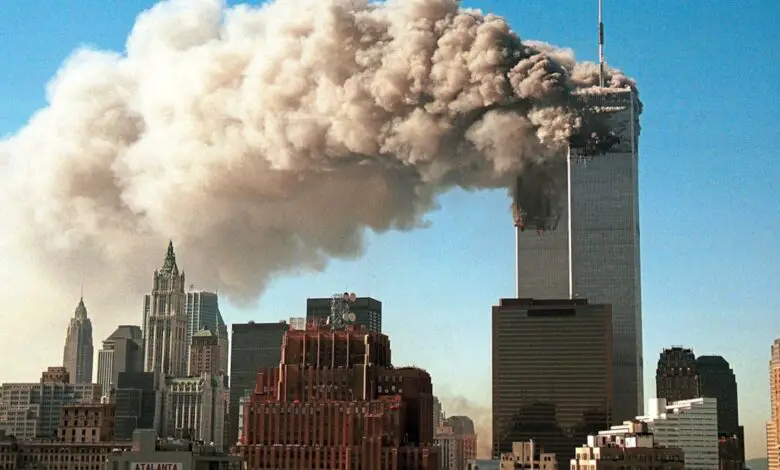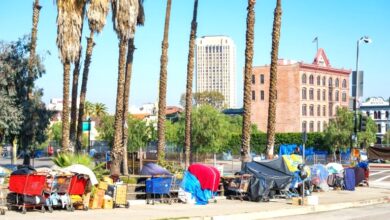Revealing Facts About 9/11: What You Should Know
Revealing Facts About 9/11: What You Should Know

Uncover the truth with key facts about 9/11, understanding this pivotal day’s impact on America and the global landscape.
Revealing Facts About 9/11: What You Should Know
The events of September 11, 2001, were a major turning point in American history. This day, known for the 9/11 incident, saw nearly 3,000 lives lost. These losses happened in major U.S. cities like New York City, Washington, D.C., and Shanksville, Pennsylvania.
The impacts of 9/11 changed U.S. policies and international relations. It also changed military strategies. By looking into the facts about 9/11, we see how these events affected American society and the world.
Key Takeaways
- Nearly 3,000 lives were lost on September 11, 2001.
- The attacks led to significant shifts in U.S. security and foreign policies.
- Immediate effects rippled through families and communities across the nation.
- The 9/11 incident has had a lasting impact on American and global geopolitics.
- Commemorative efforts continue to honor the victims and heroes of that day.
The Day That Changed America
The day of 9/11 was a turning point in American history. On September 11, 2001, al-Qaida carried out coordinated terrorist attacks. These attacks hit the World Trade Center and the Pentagon, causing huge damage and loss.
Many people were left to deal with grief and fear. But the country came together in mourning and solidarity. This showed the strength of American unity.
The attack on American soil sparked a wave of patriotism. People came together to support each other during hard times. The effects of 9/11 went beyond the physical damage. They changed the political, social, and cultural landscape of the United States.
New security measures were put in place. These affected air travel and public spaces. International relations also saw big changes.
As the nation faced the aftermath, resilience was key. It helped rebuild communities and restore faith in collective strength. The emotional scars from that day still remind Americans of the importance of unity in adversity.
Terror Attacks Overview
The overview of 9/11 attacks marks a sad day in history. It was a day of well-planned terrorist actions. On that morning, four commercial planes were hijacked by al-Qaida members.
Two planes hit the Twin Towers of the World Trade Center in New York. This caused huge damage and loss of life. A third plane hit the Pentagon in Washington, D.C., adding to the tragedy.
The fourth plane, United Airlines Flight 93, was heading for Washington but crashed in Pennsylvania. The passengers tried to stop the hijackers. This series of attacks is one of the darkest moments in American history.
These hijackings showed what al-Qaida could do. They changed how the world sees terrorism. The terrorist actions on 9/11 led to big changes in global security and started a long talk about fighting terrorism.
| Flight Number | Target | Status |
|---|---|---|
| American Airlines Flight 11 | North Tower, WTC | Crash |
| United Airlines Flight 175 | South Tower, WTC | Crash |
| American Airlines Flight 77 | Pentagon | Crash |
| United Airlines Flight 93 | Target in D.C. | Crashed in Pennsylvania |
Major Casualties and Impact
The tragic events of 9/11 led to unimaginable human loss. The consequences of these attacks still deeply affect society. Nearly 3,000 individuals lost their lives, marking a dark chapter in American history.
The toll on human lives
The statistics of 9/11 casualties are staggering. A total of 2,977 victims perished, while over 6,000 others were injured. These victims came from diverse backgrounds.
They included passengers, individuals in the World Trade Center, and brave responders. The human loss extended beyond immediate statistics, affecting families and communities nationwide.
Immediate effects on families
The emotional fallout for families was immense. Many grieved the loss of loved ones, facing emotional despair and financial challenges. Community support initiatives surged to help bereaved families.
Long-term effects on mental health and social cohesion became evident. This tragedy left deep scars in its aftermath.
Locations of the Attacks
The tragic events of September 11, 2001, happened in several key places. Each place left a lasting impact on the nation. These sites show the devastation of the 9/11 New York attacks. They also remind us of heroism and resilience.
World Trade Center in New York City
The World Trade Center in Lower Manhattan was the main target. It was a symbol of global commerce and economic strength. The collapse of the Twin Towers caused huge losses.
Now, the area is a memorial for the victims. It has been rebuilt to show hope and renewal.
Pentagon in Washington, D.C.
The Pentagon, the U.S. Department of Defense’s headquarters, was also targeted. A hijacked plane crashed into its western side. This attack showed weaknesses in national security.
It had a big impact on military operations and strategies after that.
Flight 93 and Shanksville, Pennsylvania
Flight 93 was hijacked, aiming for a building in Washington, D.C. The passengers showed great courage by confronting the hijackers. The plane crashed into a field near Shanksville, Pennsylvania.
This act of heroism prevented more loss of life. It shows the strength of the human spirit during the 9/11 New York attacks.
Facts About 9/11
The tragedy of September 11, 2001, left a deep impact on the world. Many 9/11 statistics show the huge scale of that day’s events. These numbers help us understand the emotional and physical effects, not just in the U.S. but worldwide.
Statistics and numbers
Important figures came out after the attacks. The facts about 9/11 show nearly 3,000 people died, and over 6,000 were hurt. More than 200 hospitals helped treat the victims. The damage caused huge economic problems, costing billions of dollars.
| Statistic | Figure |
|---|---|
| Fatalities | 2,977 |
| Injuries | 6,000+ |
| Hospitals treating victims | 200+ |
| Estimated economic loss | $123 billion |
Global reactions
Reactions worldwide showed unity against terrorism. Many countries supported the U.S., strongly condemning the attacks. NATO allies and others promised military and humanitarian help against terrorism. Vigils and memorial services around the world showed a united stand against extremism and support for those affected.
The Psychological Effects on Americans
The 9/11 attacks had a big impact on American mental health. Many people felt anxious, scared, and lost trust in their surroundings. This made everyone feel vulnerable.
Experts saw a big rise in PTSD cases, especially among first responders and survivors. They faced hard times trying to deal with what they went through. This showed how deep the trauma was, affecting families and communities everywhere.
Even years later, the effects were still felt. Studies showed that the trauma stayed in the nation’s mind. Many Americans kept dealing with mental health problems from the attacks. This showed how lasting the damage was.
Public Opinion Shifts Following 9/11
After September 11, 2001, Americans showed strong support for fighting terrorism. This was due to shared feelings and a need for justice. Many thought military action was key to keeping the country safe.
Initial support for military actions
Right after the attacks, most Americans backed invading Afghanistan. About 79% supported this move to take down al-Qaida and protect the nation. This unity across political lines showed a strong sense of national unity.
Long-term perceptions of terrorism
Over time, support for these wars decreased. The long wars in Iraq and Afghanistan changed people’s views. Many started to doubt the success of big military plans and worried about losing freedoms in the fight against terrorism.
| Year | Support for Afghanistan War (%) | Support for Iraq War (%) |
|---|---|---|
| 2001 | 79 | – |
| 2003 | 70 | 73 |
| 2007 | 45 | 30 |
| 2011 | 40 | 25 |
| 2021 | 30 | 20 |
Changes in U.S. Security Policies
The events of September 11, 2001, led to big changes in U.S. security policies. These changes aimed to make the country safer and fight terrorism better. They affected how law enforcement and national defense work.
The PATRIOT Act was a key reform. It gave the government more power to watch people and share information. This changed how security was handled.
The act also started big debates. People worried about losing privacy and the government’s power. They felt the balance between safety and freedom was at risk.
Also, airports and public places got much safer. Travelers faced new rules and checks. These steps were to stop future attacks. They changed how people travel in the U.S.
The table below shows the main security policy changes after 9/11:
| Policy Change | Description |
|---|---|
| PATRIOT Act | Expanded surveillance powers, enabling greater data collection and information sharing. |
| Airport Security | Implementation of stringent screening procedures, including body scans and baggage checks. |
| Public Venue Security | Increased police presence and surveillance measures in high-traffic areas. |
These changes were a big deal in U.S. history. They show how one event can change security policies for a long time.
Build-Up to the War in Afghanistan
The events of September 11 changed the world and led to a big change in U.S. foreign policy. This chapter looks at why the U.S. went to war in Afghanistan. It focuses on the need to fight terrorism and bring back global stability.
Reasons for military action
After the 9/11 attacks, the U.S. had to act fast. The main goal was to get rid of the Taliban, which supported al-Qaida. The U.S. got support from both parties, showing a strong stance against new threats.
Global War on Terrorism beginnings
The attacks started a global fight against terrorism, leading to U.S. military actions after 9/11. The U.S. worked with other countries to fight extremism. This effort aimed to stop terrorist activities in Afghanistan and improve security worldwide.
The Role of Media Coverage
The media was key in shaping the story of the 9/11 attacks. News reports showed the tragic events and the nation’s emotional response. Over 90% of Americans watched TV for updates, making it their main source of information.
Shocking images from news outlets deeply affected people. They helped create a shared feeling of shock and sadness.
Initial reactions to news reports
Right after the attacks, TV viewership skyrocketed. People wanted to know what was happening. News channels were on air almost all the time, filling viewers with chaotic scenes.
The media’s coverage of 9/11 attacks did more than just inform. It also affected people’s emotions and minds in real-time. This mix of journalism and crisis was complex.
Emotional toll of continuous coverage
Non-stop news coverage made everyone feel grief and trauma. It was meant to inform but often made people more scared and anxious. Images of destruction and survivor stories deeply moved people.
This coverage shaped a national feeling that was hard to grasp. The emotional impact of 9/11 news lasted long after the towers fell.
United States’ Response to the Attacks
The U.S. government quickly responded to the 9/11 attacks. They started military operations against Al-Qaeda and the Taliban in Afghanistan. This move was a key step in fighting terrorism.
After that, new laws were made, like the USA PATRIOT Act. This law gave the government more power to watch and investigate. The creation of the Department of Homeland Security showed a united effort to protect against threats.
The main goal was to prevent, prepare for, and be strong against future attacks. New policies were put in place to improve how agencies share information. This made the country’s security stronger.
| Actions Taken After 9/11 | Description |
|---|---|
| Military Response | Initiated airstrikes in Afghanistan targeting Al-Qaeda and Taliban forces. |
| Legislative Changes | Passed the USA PATRIOT Act to enhance surveillance capabilities. |
| Creation of DHS | Established the Department of Homeland Security to coordinate national security efforts. |
| Intelligence Reform | Implemented policies for improved intelligence sharing among agencies. |
Commemoration and Memorialization Efforts
Years after 9/11, the U.S. still honors the lives lost. Community gatherings and formal events are key for remembering. These events help unite people and honor the victims.
Many traditions have grown, like the 9/11 memorial ceremonies held every year. These ceremonies are held across the nation.
Annual ceremonies and observances
Every year, events for 9/11 are held at places like the World Trade Center. These ceremonies include:
- Reading the names of the victims aloud
- Moments of silence shared by assembled crowds
- Special musical performances to evoke reflection
These events honor the victims and help communities heal. Families and friends come together with strangers, sharing a moment of loss and remembrance.
National September 11 Memorial & Museum
The National September 11 Memorial & Museum is a lasting tribute to the attacks. It’s located at the site of the Twin Towers. The museum honors victims and teaches about the day and its effects.
Key features include:
- A striking design that reflects the footprint of the Twin Towers
- Interactive exhibits detailing personal stories and artifacts
- Sensitive spaces offering quiet reflection
These efforts show the nation’s dedication to remembering the victims. They ensure their stories are kept alive in our collective memory.
Lasting Impact on Foreign Policy
The 9/11 attacks changed American foreign policy a lot. They led to a big focus on fighting terrorism. This change made the U.S. focus more on keeping itself safe than on talking to other countries.
The U.S. went to war in Afghanistan and Iraq. This was to stop threats to the U.S. and its friends. These actions show how the U.S. now fights terrorism first.
The 9/11 legacy on international affairs still shapes U.S. actions worldwide. Countries seen as threats face sanctions or military action. This has made U.S. relations with other countries tense.
Now, the U.S. works more with other countries to keep everyone safe. This shows how 9/11 has changed how the U.S. deals with the world.
Today, the U.S. is working hard to stop extremism and find the causes of terrorism. It’s building alliances to keep unstable areas stable. This shows how 9/11’s impact is still felt in U.S. foreign policy.
| Dimension | Pre-9/11 Policy | Post-9/11 Policy |
|---|---|---|
| Diplomacy | Emphasis on dialogue and negotiation | Focus on military intervention and security partnerships |
| International Relations | General cooperation with various nations | Focused alliances with select allies based on security needs |
| Security Approach | Predominantly reactive | Proactive measures against terrorism |
| Global Influence | Soft power strategies | Hard power engagement through military presence |
Conclusion
The events of September 11, 2001, changed the United States forever. This summary shows how the attacks exposed weaknesses in the nation’s defenses. The attacks had a deep emotional and physical impact on America, making us think more about safety and security.
The impact of 9/11 on America is still felt today. It taught us the importance of being strong and ready for anything. The bravery of first responders and civilians reminds us of the nation’s true strength. It’s not just about defense, but also about coming together and showing compassion.
The memories of that day still affect us today. The story of 9/11 guides our approach to national security and how we interact with the world. By remembering and learning from it, we honor those who were lost. We aim to create a future filled with awareness, understanding, and peace.
FAQ
What were the main events of 9/11?
On September 11, 2001, al-Qaida carried out a series of attacks. They hijacked four planes. Two hit the Twin Towers in New York, one hit the Pentagon, and the last plane crashed in Pennsylvania after passengers fought back.
How many people lost their lives in the 9/11 attacks?
Almost 3,000 people died, with 2,977 victims and over 6,000 injured. The victims were from many countries, mostly Americans. They included plane passengers, people in the towers, and first responders.
What were the emotional impacts on families affected by 9/11?
Families felt deep emotional and psychological pain after the attacks. They grieved for lost loved ones and faced financial struggles. The tragedy has had lasting effects on mental health and community bonds.
What was the significance of the World Trade Center in relation to the attacks?
The World Trade Center was a symbol of American business and strength. It was the main target of the 9/11 attacks. Today, it’s a memorial for the victims of that day.
How did the attacks influence U.S. security policies?
The U.S. made big changes in security after 9/11. The PATRIOT Act was passed, and security at airports and public places got tighter. These steps were to keep the country safe and stop future threats.
What global reactions followed the 9/11 attacks?
The world condemned terrorism and many countries helped the U.S. in various ways. Memorials and vigils were held globally. They showed support for the victims and a stand against extremism.
What was the impact of 9/11 on military policies in the United States?
9/11 started the Global War on Terrorism. The U.S. went to war in Afghanistan and elsewhere. The goal was to defeat al-Qaida and stop terrorism in the U.S. and worldwide.
How did public opinion shift after 9/11?
At first, most Americans supported military action, with 79% backing the Afghanistan invasion. But, opinions changed over time. People grew wary of long wars and worried about civil liberties.
What year did the National September 11 Memorial & Museum open?
The National September 11 Memorial & Museum opened on September 11, 2011. It was on the 10th anniversary of the attacks. It honors the victims and teaches visitors about 9/11’s impact.
How did the media coverage affect public sentiment after the attacks?
The constant media coverage of 9/11 created a shared grief among Americans. It informed people but also caused widespread fear and anxiety that lasted long after the attacks.



